Turning Yard Waste into Garden Gold: Composting Through the Fall and Winter
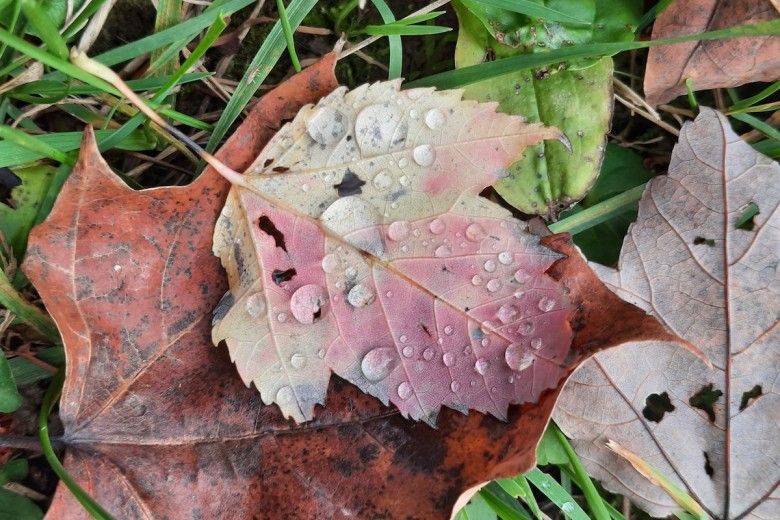
As the temperatures cool and leaves start to change color, many might be wondering how to best prepare their properties and gardens for winter. While dead plant matter in garden beds may seem unsightly to some, leaving the fall cleanup until spring has a whole host of benefits.
Leaf it Be
Ecologically, the best option is to allow the leaves to remain where they fall. Decaying leaves are an excellent and free source of nutrients such as nitrogen, carbon, and phosphorus, which can add vital nutrients back to your garden for plants come spring. Additionally, leaf litter builds soil structure and can help suppress soil borne diseases, and also keeps the surface temperature above freezing to allow for increased infiltration of water from winter rain and snow events.
If you must rake or blow the leaves, it is recommended to rake the piles at the bottom of trees, leave piles at the edge of your property, or layer the leaves and debris as a natural mulch for your garden beds. This natural cover keeps the soil warm and provides essential habitat for woolly bear caterpillars, luna moths, swallowtail butterflies, and other invertebrates that use the leaves and debris for protection and camouflage. Pollinator eggs, cocoons, and chrysalises rely on this natural cover in order to survive winter and hatch in the spring.
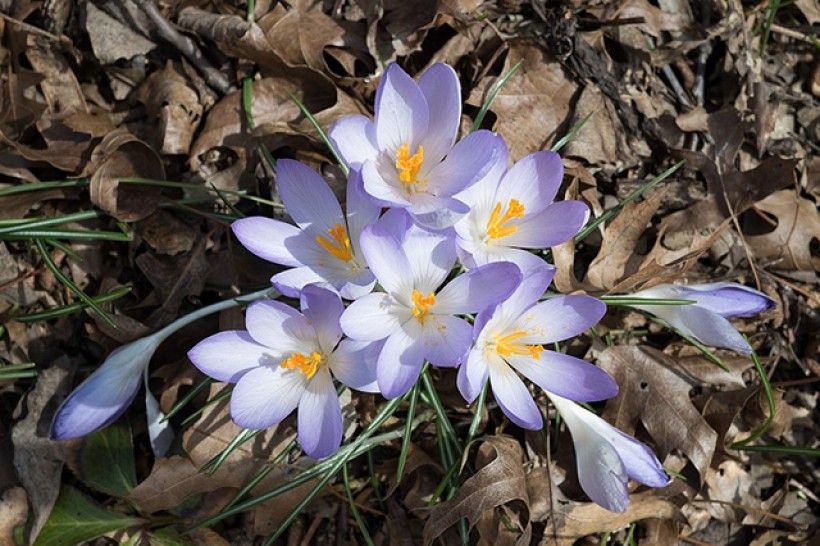
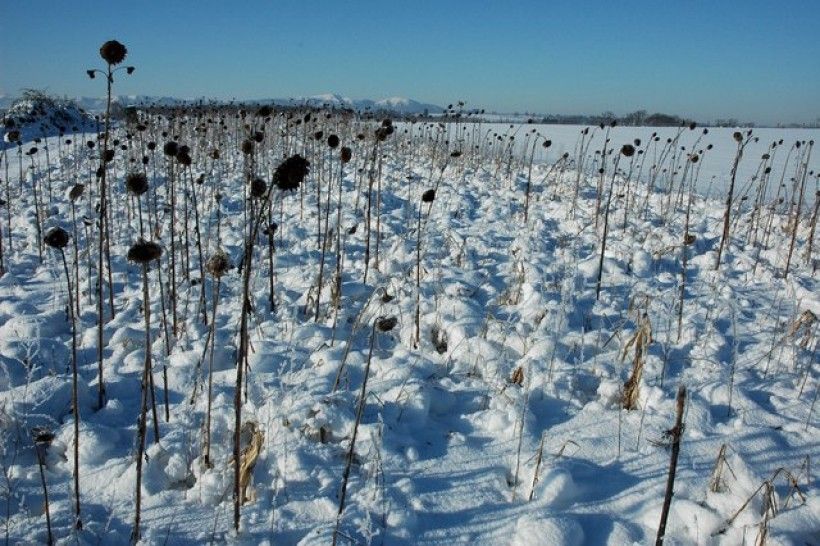
Putting the Gardens to Bed
You can provide winter habitat in your garden as well! While dead flower stalks may not be attractive to our eyes, leaving them standing and cutting the stems to 10–12 inches tall provide the ideal habitats for native overwintering bee species. Consider leaving old seed heads to provide a food source for goldfinches, chickadees, and other non-migratory songbirds that may reside in our region over the chilly months.
Composting at Home
Many residents have chosen to install at-home compost systems, whether it be a tumbler, a formal compost bin, or a contained compost pile for kitchen scraps and yard waste. The best way to have a healthy compost is to encourage the natural decomposition process, in which heat is created by the breaking of molecular bonds as fungal and microbial systems get to work turning organic matter into soil. Using the method of creating “brown” and “green” layers in your compost with both kitchen scraps and dried material such as leaves has proven to be a sure-fire way to get your compost off to a good start.
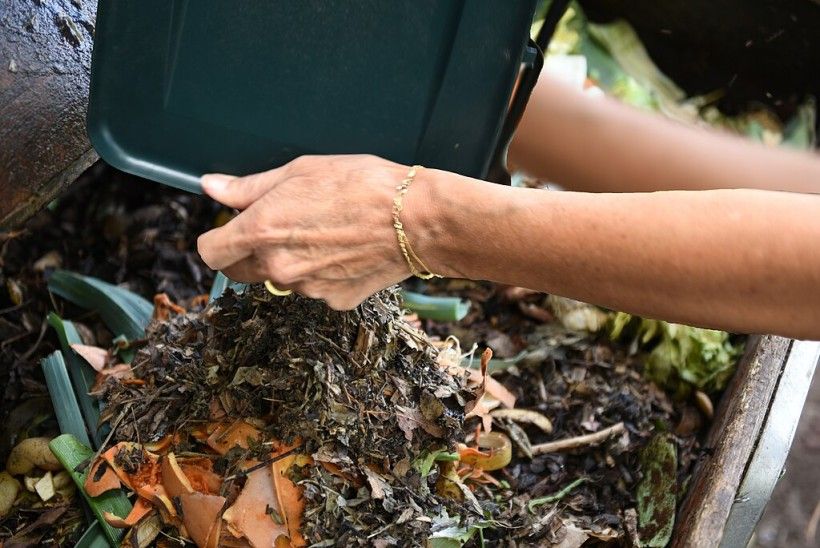
Municipal Composting Options
Not ready to commit to composting yet? Check your township, borough or city’s websites for their provided yard waste collection programs. Some locations offer leaf bags for pick up, to either be collected curbside on specific days or to be delivered to the local collection site when full. Some municipalities have their own composting sites and programs, while others use regional facilities for handling residential yard waste, leaf debris, woodchips, and small tree trimmings.
Many local municipalities coordinate yard waste pick-ups or local drop off for residents, where the material is then delivered to the Lanchester Landfill, managed by the Chester County Solid Waste Authority. The CCSWA landfill gas developer, EDL, compresses, filters and dries the landfill gas and sends it via pipeline to replace natural gas at seven local businesses, generating 3 megawatts of electricity. CCSWA holds monthly public meetings and educational presentations for the recycling programs in Lancaster and Chester Counties for community groups, schools, businesses, and professional organizations. The Authority received recertification in 2024 by the Wildlife Habitat Council for the onsite wildlife and habitat conservation efforts through revegetation. A portion of the Lanchester Landfill’s tipping fee is directed to benefit local communities as well as county and state environmental stewardship programs.
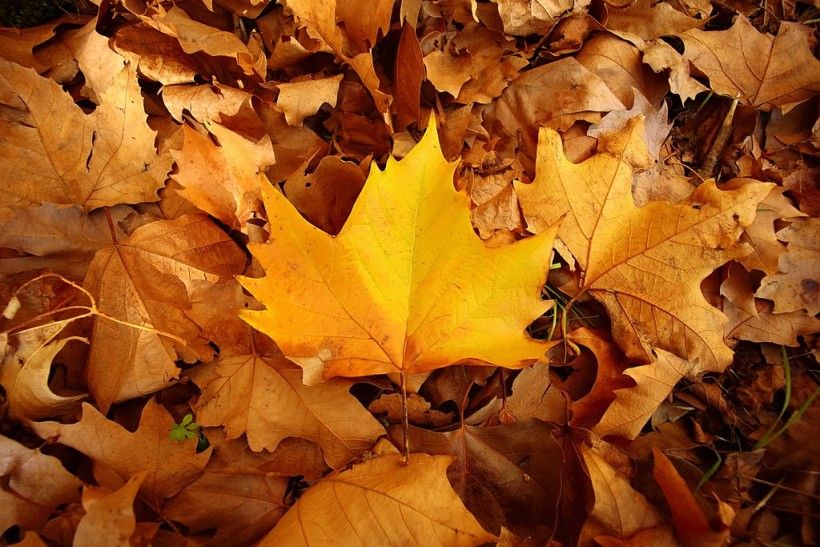
The programs below offer residential yard waste composting within Chester County:
East and West Bradford Townships: Drop off Wednesdays and Saturdays, 9 a.m.–2 p.m., at 2020 Strasburg Road, Coatesville, PA 19320
City of Coatesville, South Coatesville Borough, East Fallowfield Township, Valley Township, Modena Borough: Drop off Saturdays, 8 a.m.–2 p.m., at 2240 Upper Gap Rd, South Coatesville, PA 19320, managed by Central Chester County Recycling Authority
Caln Township: Curbside pick up only, 5 a.m.–5 p.m., April through mid-December. Leaf vacuuming offered on select weeks. Compost available for resident pick up, excess is given to the farmers that lease the municipal lands within the township.
Downingtown Borough: Yard waste pick up services twice a week for select areas.
West Brandywine Township: Drop off first Saturday of the month, 8 a.m.–1 p.m., March through October. Additional drop off days on the third Wednesday of the month, from 4–8 p.m.
Don't see your location listed? Check your municipality's website for more information about their yard waste and composting programs.
References:
- Leave the Leaves: Winter Habitat Protection — Xerces Society
- Forget Fall Cleanup! Autumn Gardening Tips to Help Pollinators — National Wildlife Federation
- Lanchester Landfill History — Chester County Solid Waste Authority
Lead image credit: Melissa Reckner